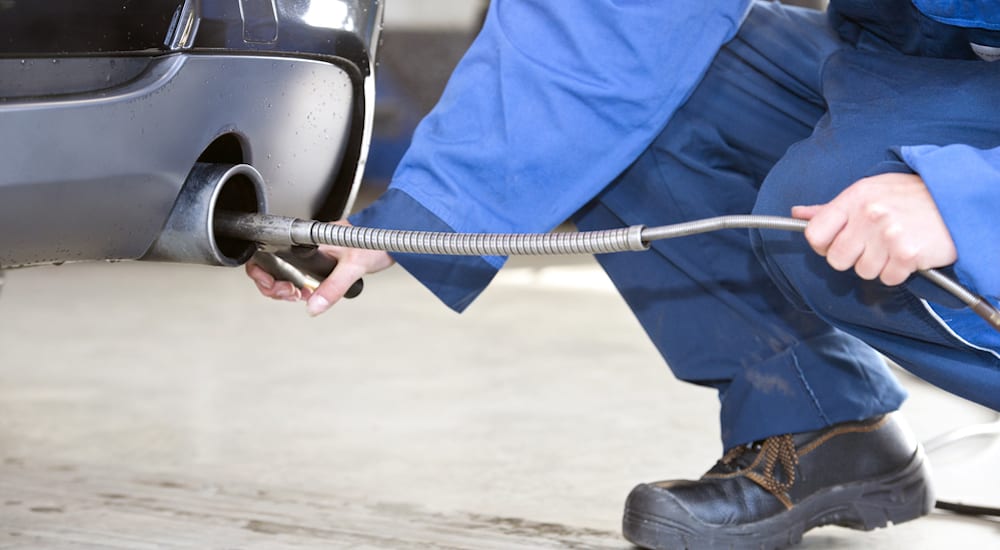Navigating the choppy waters of current auto news can prove a unique challenge, forcing one to remain vigilant, watchful of the destination (compelling, promising headlines) while weathering the storm (discouraging headlines worthy of criticism).
In terms of the former, we’ve the spent the last decade forging our way out of a global recession (albeit one that fueled quantum leaps in innovation). With the advent of sustainable fuel alternatives as well as performance, informational and entertainment technologies, vehicles have never proven more compelling – or promising. But if the ‘car of tomorrow’ represents the most immediate finish line, the race towards that milestone has resulted in a steady string of the latter – quelling our touch-and-go romance with the automotive industry as a whole.
From layoffs and plant closures to safety recalls, it would be hard for any reasonable person not to be critical. And while such criticisms are entirely justified, and deserved by the automakers who find themselves at the ‘business-end’ of those criticisms, the frequency of such headlines seem to be having a normalizing effect — in some small way modifying our lofty expectations of automakers. But this de-romanticism isn’t all negative, as it empowers our collective ability to hold accountable automakers who might have previously felt untouchable.
Consider, for a moment, the recent trend towards emissions scandals. While the Volkswagen Group might have stolen the vast majority of emissions-cheating headlines in recent months, FCA has now thrown their proverbial hat in that same costly ring…to the tune of $800 million.
At the heart of the agreement (designed to settle consumer, civil and environmental claims) is FCA’s 3.0-liter EcoDiesel V6 engine. As alleged by regulators, the engine was designed to cheat emissions testing, using ‘defeat devices’ and/or deceptive software.
According to Andrew Wheeler, on behalf of the Environmental Protection Agency, “Fiat Chrysler deceived consumers and the federal government by installing [software] on these vehicles that undermined important clean air protections.”
FCA has denied any validity to the accusations. However, they have accepted the terms of a settlement which places them on the hook for $311 million in fines, $280 million in the settlement of owner claims, $100 related to extended warranties, and $20 million to the state of California. And while the court has accepted FCA’s claims of no wrongdoing, one can’t help but lament the apparent cost of securing the moral high-ground. But before we go about vilifying FCA, let’s take a closer look at the diesel emissions scandal, and what prompted the spike in activity in recent years.
Beginning in 2014, the International Council on Clean Transportation had reported a series of discrepancies found in the emissions of US and European models. In addition to the discrepancies, it was found the certain vehicles with diesel engines – in real-world conditions – well-exceeded their reported emissions levels. This would eventually spark the implementation of the Worldwide Harmonized Light Vehicles Test Procedures, sanctioned by the UN, to standardize regulations based on real-world conditions. And while implementation would prove costly, and demanding, to implement, the conversation would be enough to compromise a number of automakers.
But these cases were only the most recent examples, exposed by the evolution and enforcement of green regulations. As early as 1973, a number of automakers (including Ford, GM, Chrysler, VW and Toyota) were fined for international cheating, forcing the wide-scale removal of ambient temperature switches.
In 1996, GM found themselves responsible for an $11 million settlement and 470,000 vehicle recalls, following the identification of emissions-cheating software. With both mechanical and digital manipulations exposed, the global automotive community was now being held under greater scrutiny. This would, of course, only be furthered by the worldwide implementation of California-centric environmental initiatives. And since the mid-90’s, automakers from Fiat to Honda, along with major tractor-trailer and heavy-equipment manufacturers have found themselves responsible for costly settlements and recalls. But the tightening of regulations seemed to have reached its most impactful point to-date in 2015, sparking a steady stream of manufacturers to be accused of wrongdoing under the Clean Air Act.
Granted, the Clean Air Act was nothing new. Originating as the Air Pollution Control Act of 1955, the legislation would evolve continually, with amendments made as early as 1963. The initial amendment transitioned the legislation from research-centric policy to one that would be enacted and enforced on a Federal Level.

By 1990, the Federally-enforced policy would evolve to address an array of environmental concerns, ranging from toxic air pollution to ozone depletion and acid rain. It would include specific regulations for all forms of manufacturing and – of course – the operation of motor vehicles.
But in 2015, things began to come to a head. The Volkswagen Group would be served a notice of violation (against the Clean Air Act) based around their Turbocharged Direct Injection diesel engines, and claims that emission controls were being activated during testing – falsifying the results. As of 2017, the automaker would claim guilty. The penalty? $4.3 billion (USD) in penalties, with three executives seated to prison terms.
Nissan and Renault would follow suit, accused with the use of a ‘defeat device’ which (according to the report) “specifically modifies the functioning of the engine to reduce emissions of nitrogen oxides in conditions specific to the regulatory tests”. In practical terms, the accusation claims that the emissions levels of over 900,000 Nissan-Renault vehicles tested for emissions in excess of 300% of what they were rated for. The fraudulence comes in the fact that each vehicle was equipped with a device that reduced those emissions levels when the vehicle was subjected to the specific conditions found during emissions testing.
And while the news related to the accusations aimed at FCA isn’t ‘news’ (having first been reported in January 2017) it feels amplified following the tangible implications of the VW Group findings.
Jumping back 12-months , the EPA claims that 100,000 diesel-powered vehicles (both truck and SUVs) across the FCA brands were equipped with engine software designed to falsify emissions. Partnering with the US Justice Department, the EPA would pursue their investigation – implying the possibility of criminal liability, similar to that of the VW findings – while FCA would remain adamant in their innocence.
But with the settlement in place, what does that mean for the 104,000+ individual Jeep and RAM owners whose 2014-2016 RAM 1500 and Jeep Grand Cherokee SUVs were equipped with the 3.0-liter EcoDiesel?
In addition to a recall, allowing for an update to the engine software, each owner should expect to receive (on average) a $2,800 settlement.
Having originally requested a settlement closer to $5,000 per owner, senior policy counsel Shannon Baker-Branstetter states, “This settlement is significantly lower. But it does recall the vehicles, and if the software fix is successful and completed in a timely manner, the ongoing damage to customers and the environment will be mitigated going forward.”
Of course, the larger moral to the story is that the EPA and California Air Resources Board (CARB) are among the various groups that are reigning in the regulatory expectations of all automakers in a more aggressive manner than ever before.
In a statement by Andrew Wheeler, the settlement, “sends a clear and strong signal to manufacturers and consumers that EPA will vigorously enforce the nation’s laws designed to protect the environment and public health.”



